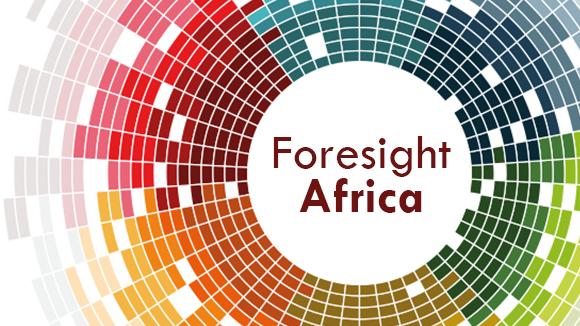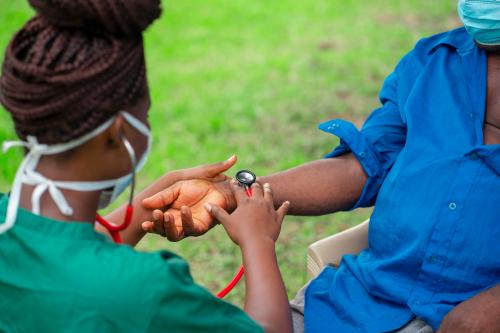Below is a viewpoint from the Foresight Africa 2023 report, which explores top priorities for the region in the coming year. Read the full chapter on health.
 As we commence 2023, the world is still grappling with the direct and indirect effects of the COVID-19 pandemic. In retrospect, the pandemic tested Ethiopia’s health system like no other challenge in recent history and amplified its existing strengths and weaknesses. The crisis also gave us an opportunity to rebuild our system with new insights, gained from the response to this once-in-a-generation pandemic.
As we commence 2023, the world is still grappling with the direct and indirect effects of the COVID-19 pandemic. In retrospect, the pandemic tested Ethiopia’s health system like no other challenge in recent history and amplified its existing strengths and weaknesses. The crisis also gave us an opportunity to rebuild our system with new insights, gained from the response to this once-in-a-generation pandemic.
I was appointed as Minister of Health in Ethiopia the day our health system detected the first COVID-19 case in the country, 70 days after the first case was detected in Wuhan. Two to three months following this, we noticed a significant decline in the utilization of essential health services like vaccines, antenatal care, HIV care, and others. The Ministry’s identification and awareness of this worrying trend was made possible through our District Health Information System, which enabled health officials to plan for—and execute—mitigation measures including non-visit care through teleconsulting; multi-month dispensing; and strong effective community monitoring. These measures helped Ethiopia to be among the few African countries that have maintained essential health services during the pandemic.
However, there were also pitfalls and lessons for improvement. The health system was aware of only a proportion of the cases and deaths from COVID-19, even though the Government rapidly expanded testing sites from zero to 85, in less than six months. During these first few months, we implemented strict public health and social distancing measures that were being recommended globally and used by many countries in the region. We quarantined travellers, contacts, and suspects in health facilities, schools, and other public facilities and admitted all positive cases. In hindsight, there was already community spread by the time we were implementing these interventions, making our response ineffective and less appropriate for the stage of the outbreak. We also quickly learned that we did not have the physical infrastructure, nor the resources required for isolating thousands of people and had to make a shift.
As I look forward to 2023, I single out two priority investment areas that are required to build a more resilient system that will be better equipped to handle future health shocks.
Investing in health information systems that generate individual-level patient data should be a priority in 2023. This will support vital registration efforts, enable contact tracing, assessment of the quality of care, and provide near-real time outcome data to guide the health system with evidence.
Investing in a strong primary health care (PHC) providing diverse care. Ethiopia has prioritized investment in PHC, but to date, most of these investments have been narrowly focused on preventing and treating infectious diseases and maternal and childhood illnesses and only recently expanded to noncommunicable diseases (NCDs). However, in order to respond effectively to future outbreaks, our PHC should have the capacity to address a broader range of health challenges like NCDs, mental health, emergencies, and others. The benefits of community outreach through house-to-house surveillance by health extension workers, was also a valuable lesson to continue investing in community health for a strong PHC.
The Brookings Institution is committed to quality, independence, and impact.
We are supported by a diverse array of funders. In line with our values and policies, each Brookings publication represents the sole views of its author(s).







Commentary
Ethiopia’s lessons from COVID-19
May 12, 2023